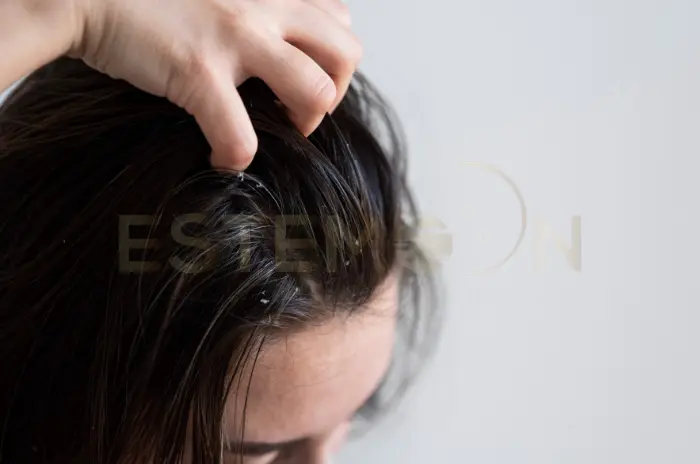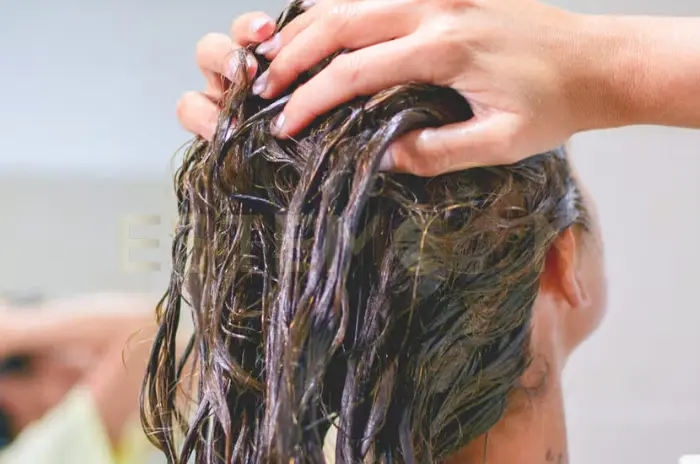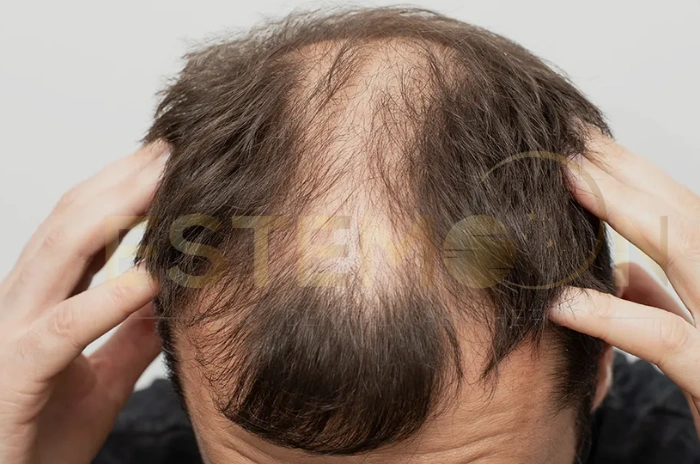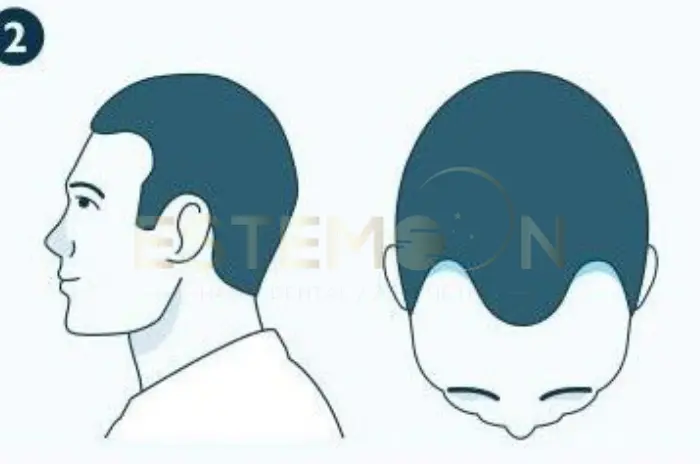A dry scalp can transform your daily routine into an uncomfortable experience filled with itching, flaking, and irritation. This common condition affects countless individuals worldwide, regardless of age or hair type. When your scalp lacks sufficient moisture and natural oils, it becomes vulnerable to tightness, sensitivity, and visible flaking that can damage your confidence.
Addressing dry scalp requires understanding its root causes and implementing targeted solutions. Whether you’re experiencing mild seasonal dryness or chronic scalp discomfort, effective treatments exist to restore balance. This comprehensive guide explores proven remedies, preventive strategies, and professional treatments to help you achieve a healthier scalp.

What dry scalp is and key symptoms
Dry scalp develops when your scalp’s skin loses its natural moisture balance and protective oil barrier. This moisture deficiency disrupts the skin’s ability to function properly, leading to irritation and discomfort. Unlike conditions caused by excess oil or fungal overgrowth, dry scalp stems directly from insufficient hydration.
The most recognizable symptom is persistent itchy scalp and flaking that produces small, white, powdery flakes. These tiny particles easily fall onto your shoulders and clothing, becoming particularly noticeable on dark fabrics. The itching often intensifies after washing your hair or in air-conditioned environments.
You may experience a tight, stretched sensation across your scalp, similar to dehydrated facial skin. Your scalp may also show increased sensitivity to touch, hair products, or temperature changes. Additional symptoms include redness in patches, hair that appears dull, and rough texture when you touch your scalp.
Dry scalp vs dandruff main differences
Many people struggle to distinguish dry scalp vs dandruff, yet understanding this difference is crucial for effective treatment. While both conditions produce flaking and itching, they originate from opposite causes and require different care approaches.
Dry scalp produces small, fine, white flakes that have a dry, powdery consistency. These flakes result from dehydrated skin that sheds prematurely. Your scalp feels tight, similar to dry skin anywhere else on your body.
Seborrheic dermatitis dandruff, conversely, stems from excess sebum production combined with yeast overgrowth. This condition produces larger, yellowish flakes with an oily texture. The scalp appears greasy and inflamed with visible redness.
| Characteristic | Dry Scalp | Dandruff |
|---|---|---|
| Flake Size | Small, fine | Large, chunky |
| Flake Texture | Dry, powdery | Oily, sticky |
| Scalp Feel | Tight, dry | Greasy, inflamed |
| Root Cause | Moisture deficiency | Excess oil, yeast |
Treatment effectiveness differs significantly. Anti-dandruff shampoos effectively combat seborrheic dermatitis dandruff but can aggravate dry scalp by removing moisture. Conversely, rich moisturizing treatments perfect for dry scalp may worsen dandruff.
Understanding Dry Scalp and Its Common Causes
Identifying dry scalp causes enables you to address the problem at its source. Environmental factors play a dominant role, with cold weather being the primary culprit. Winter air contains less moisture, stripping hydration from your scalp. Indoor heating systems compound this problem by creating artificially dry environments.
Hair care products often contribute substantially to scalp dryness. Shampoos containing harsh sulfates strip away natural protective oils. Alcohol-based styling products and synthetic fragrances can trigger contact dermatitis scalp reactions that disrupt your skin’s moisture barrier.
The natural aging process affects scalp moisture levels considerably. Sebum production decreases progressively as we age, typically beginning in our 30s. This gradual reduction makes mature individuals more susceptible to dry scalp conditions.
Lifestyle habits significantly impact scalp health. Washing your hair too frequently removes protective oils faster than your scalp can regenerate them. Using hot water during shampooing strips away oil. Heat styling tools like blow dryers dehydrate both hair and scalp tissue.
Swimming in chlorinated pools without protection exposes your scalp to harsh chemicals. Sun exposure can burn and dry scalp tissue. Stress and inadequate sleep disrupt hormone balance, affecting sebum production and skin repair.
Nutritional deficiencies contribute to dry scalp development. Insufficient omega-3 fatty acids found in fish and walnuts compromise skin barrier function. Deficiencies in zinc, B vitamins, and vitamins A and E impair healthy oil production.
Professional Tips for Maintaining Scalp Health
Establishing a consistent routine enhances dry scalp treatment effectiveness. Wash hair 2-3 times weekly using lukewarm water to prevent further moisture loss.
Gentle application techniques prevent additional irritation. Massage shampoo with fingertips rather than nails, and avoid aggressive scrubbing motions that can damage delicate scalp skin.
Product Application Guidelines
Apply treatments to damp scalp for better absorption and distribution. Section hair systematically to ensure complete coverage of affected areas.
Leave medicated products on scalp for recommended contact time before rinsing. This allows active ingredients sufficient time to work effectively.
Follow manufacturer instructions regarding frequency and concentration. Starting with lower concentrations helps determine skin tolerance levels.
Environmental Considerations
Use a humidifier during dry seasons to maintain optimal indoor moisture levels. This environmental modification supports overall skin and scalp health.
Protect scalp from harsh weather conditions using appropriate headwear. UV protection prevents further damage to compromised scalp tissue.
Limit heat styling and chemical treatments while addressing dry scalp issues. Allow scalp time to heal and restore natural barrier function.
How Coconut Oil Helps Moisturize Dry Scalp
Coconut oil stands out as one of the most effective home remedies for dry scalp due to its unique molecular structure. This natural oil penetrates hair shafts and scalp tissue effectively. Its medium-chain fatty acids, particularly lauric acid, provide deep moisturization while offering antimicrobial benefits.
The moisturizing action of coconut oil creates a protective barrier on the scalp surface, preventing water loss while allowing skin to breathe. Unlike petroleum-based products, coconut oil doesn’t clog pores. Its natural composition closely mimics your scalp’s sebum.
Coconut oil’s anti-inflammatory properties help calm irritated scalp tissue and reduce redness. Its antifungal and antibacterial characteristics protect against infections that can develop in compromised, dry skin.
How to Apply Coconut Oil for Best Results
For optimal dry scalp treatment with coconut oil, proper application matters. Start with organic, virgin coconut oil. Warm 2-3 tablespoons in your palms until it liquefies. The oil should feel comfortably warm on your wrist.
Part your hair into sections for thorough application. Use your fingertips to massage the oil gently into your scalp using circular motions. This stimulates blood circulation while distributing the oil evenly. Spend 5-10 minutes ensuring complete coverage.
Leave the coconut oil treatment on for 30-60 minutes. For intensive treatment, apply before bed and sleep with a shower cap. This extended contact time allows maximum penetration.
Washing out coconut oil requires proper technique. Apply a gentle moisturizing shampoo to dry, oil-coated hair before wetting it. This helps emulsify the oil. Then add water gradually while massaging. You may need to shampoo twice to remove all residue.
For maintenance, repeat coconut oil treatments 1-2 times weekly. Consistency produces better results. You can also add tea tree oil or lavender oil for enhanced benefits.

Tips to Prevent Dry Scalp and Hair Loss
Prevention represents the most effective strategy for maintaining optimal scalp care. Establishing protective routines and making informed choices about hair care products can prevent moisture loss.
Adjust your hair washing frequency based on your scalp’s needs. Most people with dry scalp benefit from washing 2-3 times weekly rather than daily. This allows your scalp’s natural oils to accumulate and protect the skin.
Water temperature dramatically impacts scalp moisture retention. Always use lukewarm or cool water for shampooing and rinsing. Hot water strips protective oils aggressively. Cool water helps seal hair cuticles and minimizes moisture loss.
Choose the best shampoo for dry scalp by carefully reading ingredient labels. Avoid formulas containing sodium lauryl sulfate and synthetic fragrances. Look for sulfate-free products with moisturizing ingredients like glycerin, hyaluronic acid, aloe vera, and natural oils.
Protect your scalp from harsh environmental conditions. During cold months, wear hats made from natural materials like cotton or wool. In summer, protect your scalp from UV damage with hats or UV-protectant hair sprays.
Maintain optimal indoor humidity levels using humidifiers, particularly in bedrooms. Aim for 40-50% humidity to prevent excessive moisture loss. This becomes especially important during winter.
Limit heat styling tool usage. When you must use blow dryers, maintain at least 6 inches distance from your scalp and select cool settings. Apply heat protectant products before thermal styling.
Internal hydration forms the foundation of healthy scalp tissue. Drink at least 8 glasses of water daily. Incorporate foods rich in omega-3 fatty acids like salmon, walnuts, and flaxseeds into your diet regularly.
Effective Dry Scalp Treatments for Immediate Relief
When dry scalp symptoms appear, immediate relief becomes a priority. Several home remedies for dry scalp provide quick comfort while addressing underlying moisture deficiency.
Aloe vera gel delivers instant soothing relief for itchy scalp while deeply hydrating dry tissue. Use pure aloe vera gel directly from the plant or purchase organic products. Apply generously to your scalp, let sit for 20-30 minutes, then rinse thoroughly.
Apple cider vinegar rinses restore your scalp’s natural pH balance. Mix equal parts raw apple cider vinegar with water. After shampooing, pour the mixture over your scalp, massage for 2-3 minutes, then rinse well. Use this treatment once weekly.
Tea tree oil offers antimicrobial and anti-inflammatory benefits for itchy scalp and flaking. Add 5-10 drops to your regular shampoo or dilute in a carrier oil for direct scalp massage. Its natural properties help reduce irritation.
For persistent dry scalp unresponsive to home remedies, professional treatments may be necessary. Selenium sulfide shampoo treats both dandruff and some forms of scalp inflammation. Use 2-3 times weekly, applying to the scalp and leaving for 5-10 minutes before rinsing.
Salicylic acid shampoo gently exfoliates accumulated dead skin cells causing flaky scalp appearance. Start with once-weekly use and increase frequency gradually.
Knowing when to see a dermatologist for dry scalp prevents complications. Schedule professional evaluation if you experience severe itching disrupting sleep, visible hair loss, scalp bleeding, symptoms persisting beyond 4 weeks, or signs of infection.
Dermatologists can distinguish dry scalp from conditions like scalp psoriasis, tinea capitis scalp ringworm, cradle cap, or actinic keratosis scalp. Each condition requires specific treatment. For scalp psoriasis, treatments may include phototherapy for scalp psoriasis. Fungal infections require antifungal treatment for scalp.
Regular scalp massage promotes healthy blood circulation and natural oil distribution. Spend 5 minutes daily gently massaging your scalp with fingertips. This enhances nutrient delivery to hair follicles and stimulates sebaceous glands.
When to Contact a Doctor About Persistent Scalp Symptoms
Seeking professional evaluation becomes necessary when dry scalp symptoms persist despite consistent treatment efforts. Dermatologists can identify underlying conditions requiring prescription medications.
Severe itching that interferes with daily activities or sleep patterns indicates need for medical intervention. Prescription-strength treatments may provide more effective relief than over-the-counter options.
Signs of infection, including increased redness, warmth, or pustules, require immediate medical attention. Bacterial or fungal infections can complicate dry scalp conditions.
Sudden onset of severe symptoms or rapid symptom progression may indicate underlying autoimmune or systemic conditions. Early diagnosis improves treatment outcomes significantly.
Hair loss accompanying dry scalp symptoms warrants professional evaluation. Some conditions require specific treatments to prevent permanent damage to hair follicles.
When to see a doctor for dry scalp includes situations where multiple treatment attempts have failed or symptoms worsen despite appropriate care.
How to Fix Dry Scalp Effective Remedies and Prevention – Frequently Asked Questions
What is the difference between dry scalp and dandruff?
Dry scalp produces small, white, dry flakes from moisture deficiency, while dandruff creates larger, oily, yellowish flakes from excess oil and yeast overgrowth.
How can coconut oil help a dry scalp?
Coconut oil deeply moisturizes scalp tissue, creates a protective barrier preventing moisture loss, and provides antimicrobial benefits that support scalp health.
What are the common causes of a dry scalp?
Cold weather, harsh shampoos with sulfates, hot water washing, excessive heat styling, aging, dehydration, and nutritional deficiencies cause dry scalp.
How can I prevent a dry scalp naturally?
Wash hair less frequently with lukewarm water, use gentle moisturizing shampoos, stay hydrated, protect scalp from weather extremes, and apply natural oils regularly.
Follow us on social media for updates, tips, and patient success stories:




